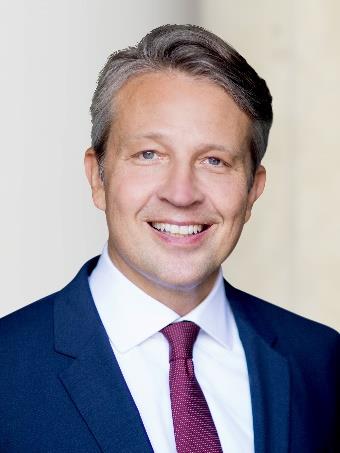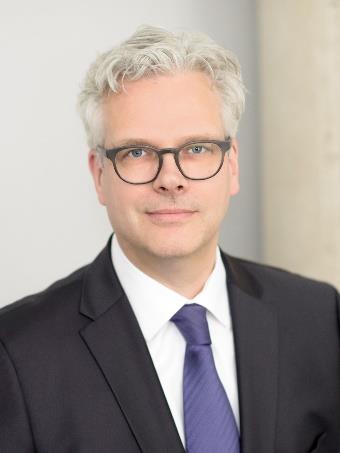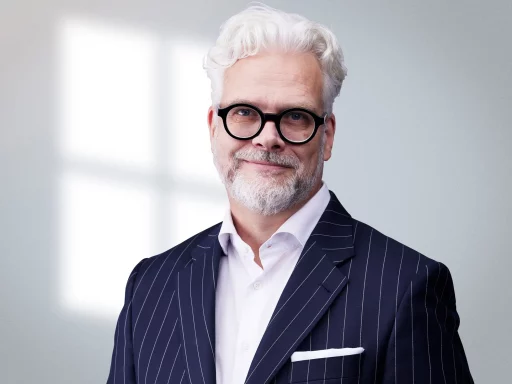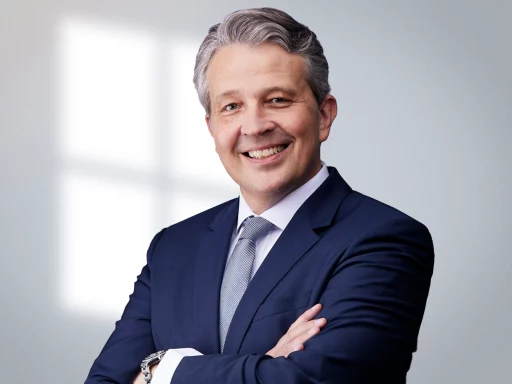What moves the healthcare market: Transformative technologies and regulation shape the M&A market
Magnus Höfer (Partner) and Christoph Osterbrink (Partner) provide a selective review of deals from the past year and the most important drivers that will continue to occupy the market in the future.
Sector Analysis Pharma/Biotech/Specialty
Review 2019
On a global level, 2019 was primarily characterised by the merger of Allergan / AbbVie and Celgene / BMS. Even if the deal is no longer part of 2019 in terms of closing: at the beginning of this year, the private equity investor Ardian sold its shares in Greifswald-based Riemser Pharma to the Spanish Esteve Group after a good seven years, thus further expanding its position as a specialty drug manufacturer.
A special position was certainly taken by the lively activities in the cannabis sector, which were also reflected in the DACH region: Bionorica sold its cannabis business C3 to the Canadian producer Canopy for the record price of EUR 225.9 million (this corresponds to around 8 times sales). Other Canadian players have also made acquisitions in Germany: Aurora / Pedanios, Aphria / CC-Pharma, Agraflora / Farmako, among others.
While CC-Pharma is diversifying in the direction of cannabis, the Danish Orifarm has taken over the specialist provider Pilatus, which operates branches in the UK, Germany and the USA as a service provider in the field of clinical trials. (see also AES/Bioclinica) Equistone acquired a majority stake in Omnicare, a specialist service provider and wholesaler for oncology patient care.
Ausblick 2020
For 2020, we expect that larger pharmaceutical companies will continue to expand their competitive position by means of so-called “bolt-on” deals of smaller/medium-sized companies. The focus of the therapy fields will be oncology and rare diseases in particular. We expect further selective consolidation in the “mature” generics market as well as among OTC and speciality suppliers (see also the takeover of easypharm by Neuraxpharm at the beginning of 2020).
As a result of the first tender of the Cannabis Agency, medicinal hemp will also be available from cultivation in Germany from 2020. This and other factors will further change the still young cannabis market.
Advances in genomics research and patient-specific therapies as well as the ever-increasing regulatory requirements are boosting the service market in this area. Here, too, the segments will increasingly merge: the formerly pure service providers (CMOs, CROs) will share the risks with the researching pharmaceutical and biotech companies and participate in development programmes.
Sector Analysis Pharmacy & Distribution
Review 2019
The Zur Rose Group was able to further expand its leading position in Europe with the acquisition of the mail-order pharmacy Medpex for EUR 170 million.
In order not to leave the field to the online pharmacies alone, Pro-AVO was founded in Germany, a joint venture of the pharmaceutical wholesalers GEHE and Sanacorp as well as Noventi, BD Rowa and Wort & Bild Verlag. There was also movement in the mail-order market in Austria: the merger with Apobag enabled Vamida to become the second largest online pharmacy.
Outlook 2020
In view of the introduction of the e-prescription and the associated stronger control possibilities of patient flows, we expect even more activities in this area.
The continuing weakness in earnings in the German pharmaceutical trade in turn led to Gehe (McKesson) and Alliance Healthcare (Walgreens Boots Alliance) announcing that they would merge their activities in Germany.
Sector Analysis Medical Technology & Digital Health
Review 2019
Large corporations are consistently pushing ahead with their strategic portfolio restructuring, as shown by the following acquisitions: 3M/Acelity, Dassault Systemes/Medidata Solution, Stryker/Wright Medical or Siemens Healthineers/Corindus Vascular Robotics.
Activities in the DACH region were accordingly rather restrained. US manufacturer Masimo joined VC-financed TNI-Medical, based in Würzburg.
Noteworthy were the strategic alliances between hospital operators and medical device manufacturers – in this case Sana Kliniken and Philips. In this win-win situation
In this win-win situation, the hospital operators significantly reduce their investments (positive cash flow effects) and the medical equipment manufacturers open up long-term sales channels.
Bayer has partnered with the British AI provider Sensyne to achieve improved results in disease diagnostics and data-driven drug research.
Google most recently announced it would acquire Fitbit for USD 2.1 bn.
Otherwise, there is a lot of activity in the technology sector in the venture capital environment: the most prominent example is Doctolib, which is on its way to becoming a unicorn with a EUR 150 m financing round. The Austrian pharmacy publisher is acquiring a majority stake in Vienna-based Diagnosia, a provider of digital drug information for medical professionals, from business angel Hansi Hansmann (Runtastic) and Speedinvest, among others.
Outlook 2020
The introduction of the new EU Medical Devices Directive in May 2020 (even though it has recently been extended to 2024 in some cases) led to reclassifications for many manufacturers and to increased expenditure and uncertainty. For the future, we expect an increase in M&A activities again.
We expect strategic partnerships between medtech and hospital operators to increase further. Capital-intensive segments such as radiology make sense to start with. Other manufacturers will certainly follow this example soon.
Further acquisitions will be driven by advances in robotics, biosensing (IoT) and artificial intelligence (AI), as these improve the effectiveness, adherence and billing of therapies.
In an age of scarce care resources and an ageing population, telemedicine and mHealth applications will help improve access to healthcare.
We see significant impetus for the market from the Digital Care Act (DVG), which came into force in November and will soon allow doctors to prescribe apps on prescription.
Sector analysis Hospital, rehabilitation and care operators
Review 2019
In 2019, the hospital sector was burdened by the regulatory framework conditions with regard to nursing care (lower staffing limits, changes in nursing cost reimbursements). In the private sector, selective investments along the value chain were observed. For example, Asklepios Kliniken secured European market leadership in the area of ehealth / mental health through the acquisition of minddistrict. Competitor Rhön Kliniken established a joint venture medgate to drive the further digitisation of the sector. Increasing outpatientisation, i.e. the acquisition of MVZs, remains a permanent driver in the sector.
With the financial support of private equity investors and family offices, the outpatient sector has increasingly established itself as a classic buy-and-build. The eye clinic chain Ober-Scharrer, for example, has found a new shareholder in Nordic Capital, while seller Palamon Capital has more than tripled its investment. Other areas such as dental practices (Jacobs Holding / Family Office), radiology, endocrinology/children’s fertility centres also saw increased transaction activity.
The rehab and care sector saw similar trends in 2019. Large national/international operators such as Orpea, Korian, Deutsche Fachpflege etc. continue to be actively observed as buyers in the market. Here too, classic buy-and-build / realisation of economies of scale is the primary motive.
Outlook 2020
The new regulatory framework will have a negative impact on margins, as the revenue side is largely determined by DRGs. In the long term, this will lead to further pressure on providers that do not cover their costs, so that there is likely to be further consolidation.
Asklepios Kliniken has already announced that it will break the stalemate with its competitor Rhön-Klinikum and pool shares together with founder Eugen Münch and make an offer to the remaining shareholders.
Buy-and-build will continue to be the driver of consolidation, with the private sector increasingly replacing established structures. Driven by investment pressure from financial investors, existing consolidation will pick up speed. We will probably see more international players, as has already been done very successfully in the laboratory/diagnostics market.
successfully practised in the laboratory/diagnostics market.
The age structure of the population leads us to expect that the topic of care will become even more clearly the focus of investors. Differentiation through care quality with simultaneous efficiency increases will continue to fuel consolidation. In addition, the market for home care and nursing is becoming increasingly professionalised.
The health sector remains an attractive growth market. Not least against the backdrop of the current COVID-19 crisis, the social value of a functioning health care system is being brought home. As a result, public and private funds are increasingly flowing into research and infrastructure.
and infrastructure and consequently induce M&A transactions. Furthermore, we believe that the following mega-trends will shape the healthcare sector in the coming years:
- Artificial Intelligence & Big Data
- Telehealth or telemedicine
- Personalised medicine
- Companion Diagnostics
- Mental Health
About Steinbeis M&A
Steinbeis M&A offers its clients a comprehensive and professional range of consulting and
range of consulting and services in the areas of Mergers & Acquisitions, Buy-and-Build,
Strategy and Capital Advisory. Clients are in particular medium-sized entrepreneurs, companies and groups of companies in Germany and abroad, but also international groups that want to establish themselves in the medium-sized market. There are currently 17 partners at Steinbeis M&A, who have completed well over 100 successful transactions in recent years.
Steinbeis M&A is a company of the Steinbeis Group (www.steinbeis.de), one of the leading
service providers for consulting and technology transfer in Europe.
Alfred Dietel
Partner www.steinbeis-finance.de/en
Alfred Dietel holds a degree in Computer Science in Theoretical Medicine (TU Munich) and an MBA from Chicago Booth and Manchester Business School.
Mr Dietel has been an investor and initial CEO and investor director in many start-ups in the cleantech, IT, medtech, sporttech and industrialtech sectors. He is currently a business angel investor and board member in two companies in the sports tech sector and founder of a corporate venture capital partnership.

Magnus Höfer
Partner www.steinbeis-finance.de/en
Magnus Höfer studied business administration at the Vienna University of Economics and Business Administration and at the University of Illinois.
In addition to his work at Steinbeis M&A, Magnus Höfer is a freelance management consultant, especially in the pharmaceutical, medtech and digital health sectors.
He also serves as a supervisory board member or advisor (Experience One AG, Orifarm A/S, TNI-Medical AG, among others) and is involved as a business angel in promising start-ups.

Christoph Osterbrink
Partner www.steinbeis-finance.de/en
Christoph Osterbrink holds a degree in business administration and studied at the universities of Marburg and Gießen. He has been a partner at Steinbeis M&A since 2010 with a focus on healthcare. From 2013 to 2019, he was also Interim Head of Corporate Finance at a leading hospital operator.
In addition to his work at Steinbeis M&A, Mr Osterbrink is a founding partner at Steinbeis Consulting Centre Impact Investing, a consulting firm for sustainable, socially and ecologically oriented companies in emerging and developing countries.




